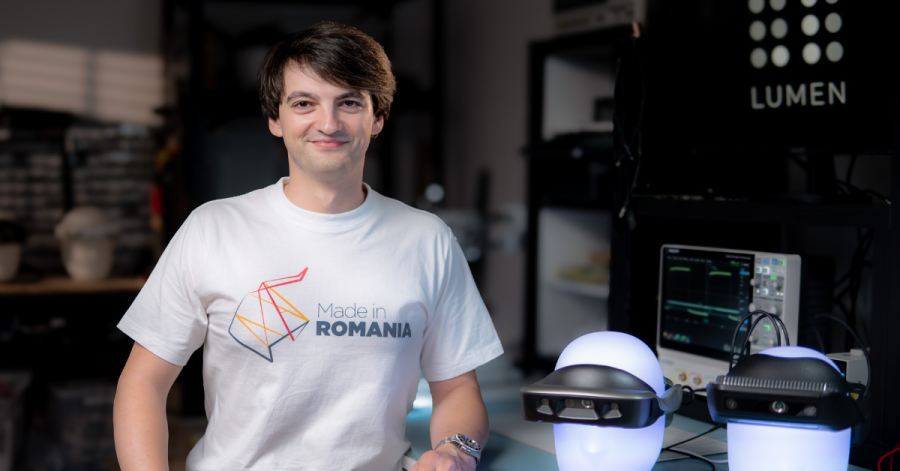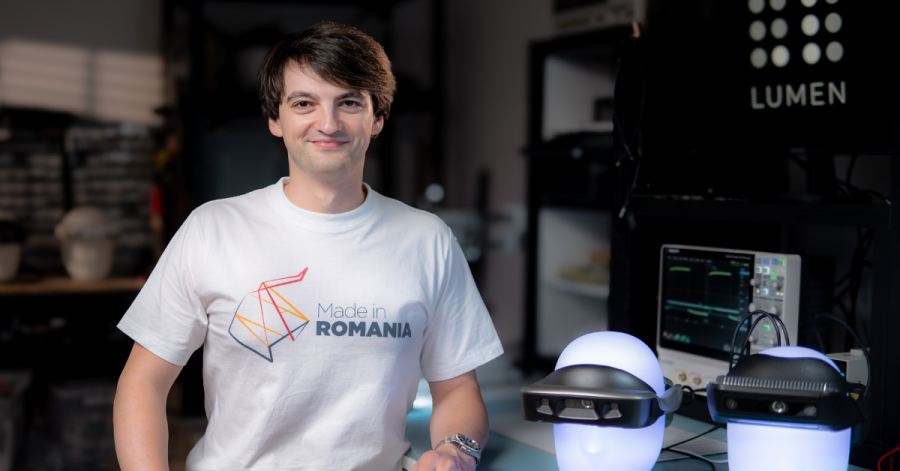Romanian DeepTech .lumen Achieves CE Certification for Assistive Wearable Technology
.lumen, a Romanian deep tech company developing assistive wearable technology for the visually impaired, has recently secured CE certification for its .lumen Glasses. This significant regulatory milestone paves the way for the product’s launch in the European market later this year.

Founded by Cornel Amariei, .lumen is building its technology around PAD AI (Pedestrian Autonomous Driving), a proprietary system that adapts principles from autonomous vehicles to pedestrian navigation. The glasses are designed to help visually impaired users navigate their environment more safely and independently, using a combination of sensors, haptic feedback, and artificial intelligence.
The Significance of CE Certification
The CE marking is mandatory for products entering the European Economic Area and indicates that .lumen Glasses comply with all relevant EU safety, health, and environmental protection legislation. “If you’re a deep tech startup in Europe, especially building hardware, the CE stamp is basically your access card to the market,” said Amariei.
The certification process involved passing more than 200 physical and technical tests and complying with over 1,600 specific requirements. Amariei noted that “over 80% of electronic devices fail on the first Electro-Magnetic Compatibility (EMC) tests—we passed from first try, but we were lucky.”
Accelerating the Certification Process
To expedite the process, .lumen developed internal testing infrastructure and procedures, which it now plans to reuse for future regulatory approvals. “There’s no one-size-fits-all timeline,” Amariei said. “For some simpler consumer electronics, certification might take just a couple of months. For more complex devices, it can stretch to longer timelines—there are medical devices needing 5 years+.”
.lumen’s approach to hardware development helped accelerate the process. The team conducted most of the validation work in-house—a capability that remains rare in Central and Eastern Europe. In Romania, only a small number of laboratories are accredited for CE testing.
Future Plans: Medical Device Certification
.lumen Glasses have been certified as a consumer electronic device, but the company is already preparing for medical device certification, which introduces an additional layer of regulatory scrutiny, including clinical investigations and stricter manufacturing requirements. Amariei noted that the company’s technology stack—hardware, software, and usability engineering—was designed from the outset to meet medical-grade standards.
Intellectual Property Strategy
Beyond compliance, .lumen’s strategy places strong emphasis on intellectual property. The company holds four US patents, extended to international coverage in up to 70 countries. These cover key elements of the PAD AI system, including environmental understanding algorithms and the glasses’ haptic interface.
Commercial Launch and Funding
Production of the first CE-certified batch of .lumen Glasses is currently underway, with 50 units being manufactured and piloted across several countries. The company plans to launch commercially in Romania in Q4 of 2024, with a broader European rollout to follow. Entry into the US market is scheduled for late 2025. To support these efforts, .lumen recently raised €5 million in funding from various investors.
As .lumen continues its path toward commercialization, the CE certification signals readiness to operate in mature markets, where safety, quality, and scalability are essential prerequisites.


